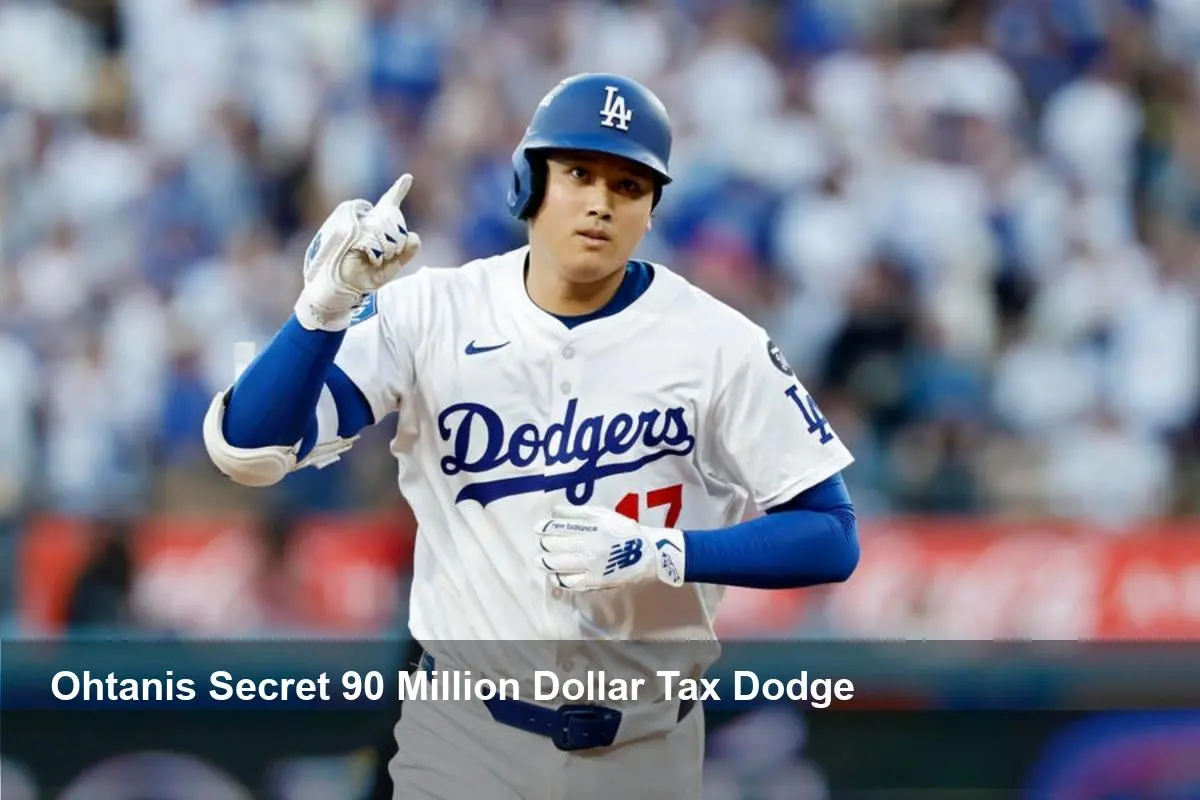Key Highlights
- Massive Deferral: Shohei Ohtani’s 10-year, $700 million contract with the Los Angeles Dodgers defers an astounding $680 million of his salary.
- Minimal Annual Pay: During his decade with the Dodgers, Ohtani will receive only $2 million per year, a fraction of his total contract value.
- The $90 Million Loophole: This unique deferred compensation structure could allow Ohtani to legally avoid approximately $90 million in California state income taxes.
- A Potential Trendsetter: Ohtani’s deal may create a tax-saving blueprint for other high-earning athletes and executives in states with high income taxes.
Ohtani’s Unprecedented Dominance
Since arriving in the MLB in 2018, Shohei Ohtani has become a global phenomenon. His list of accolades is staggering: Rookie of the Year, five-time All-Star, three MVP Awards, and a World Series title. In 2024, he achieved a milestone never seen before, joining the “50-50 club” with 50 home runs and 50 stolen bases in a single season.
His value to the Los Angeles Dodgers is undeniable, leading them to their second consecutive World Series appearance. Ohtani’s dual-threat ability as both a dominant hitter and an elite pitcher puts him in a class of his own, making him a pop culture icon and a marketing powerhouse. But the most masterful play of his career might be happening off the field, embedded within the structure of his record-breaking contract.
The $90 Million Tax Playbook
While Ohtani’s on-field performance justifies his $700 million price tag, the contract’s design reveals a brilliant financial strategy that has left tax experts and state legislators stunned.
Deconstructing the Genius Contract
Typically, large athletic contracts are paid out over the playing years. Ohtani’s deal, however, is radically different. He will be paid just $2 million per year for the 10 seasons he plays for the Dodgers. The remaining $680 million is deferred and will be paid out in installments from year 11 through 20, long after his contract with the Dodgers has concluded.
California’s High-Tax Problem
The genius of this deferral lies in state tax law. California has one of the highest state income tax rates in the nation, with a top marginal rate of 13.3%. As long as Ohtani is a resident of California and playing for the Dodgers, his income is subject to this tax.
However, once his contract ends, he is free to move to any state he chooses. By relocating to one of the nine states with no state income tax—such as Florida, Texas, or Nevada—Ohtani can receive the $680 million in deferred payments without paying California’s hefty 13.3% tax. This strategic move would result in a tax saving of approximately $90 million.
A Blueprint for the Rich?
This contract has not gone unnoticed by California’s lawmakers. Efforts have been made to close what many are calling a tax loophole for the ultra-wealthy, but so far, no legislative changes have been successful.
At the time of signing, many questioned why a superstar would defer such a vast fortune. Now, the answer is clear: it’s a calculated move for massive tax efficiency. The Dodgers benefit by having more financial flexibility to build a championship team around him, while Ohtani secures a monumental financial victory. This deal has the potential to serve as a playbook for other highly compensated individuals—from athletes to CEOs—working in high-tax states, potentially changing the landscape of contract negotiations for years to come.
Image Referance: https://www.forbes.com/sites/nathangoldman/2025/10/28/shohei-ohtanis-700m-tax-advantaged-contract-appears-to-be-paying-off/
